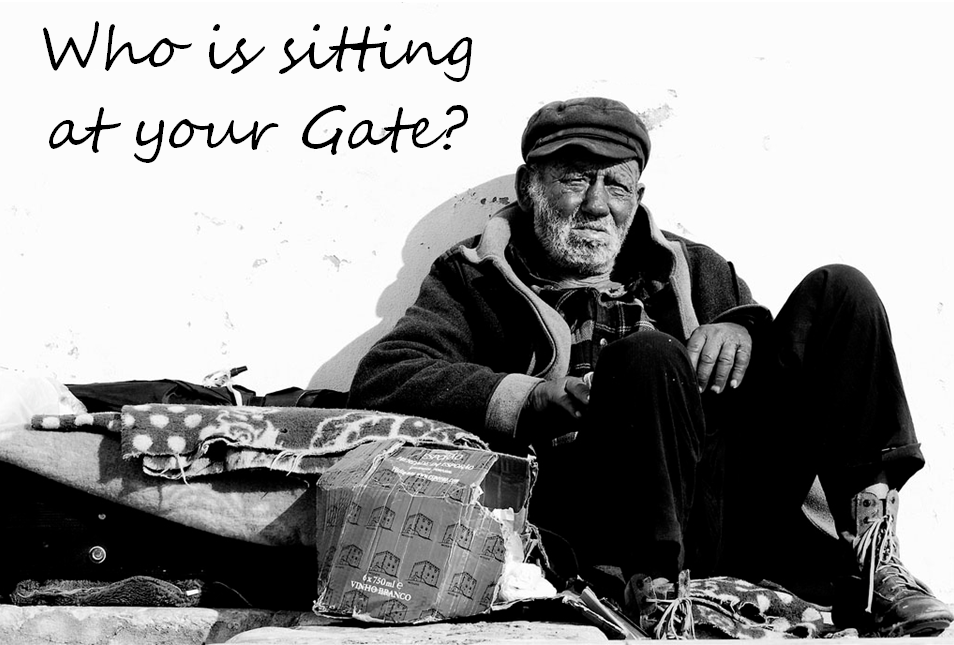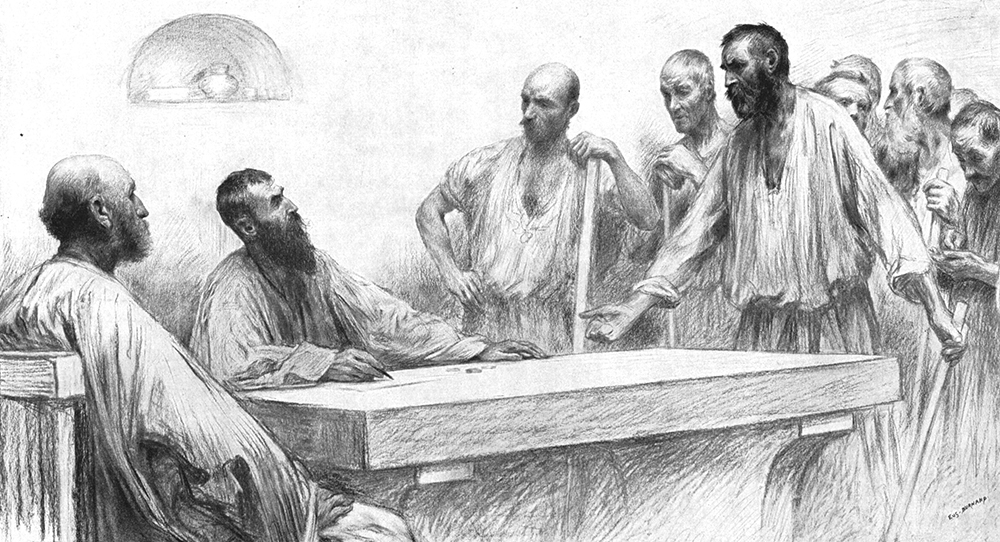 Each day we are bombarded with all kinds of advertisements, enticements to be more, have more and look more successful than we feel. In our rush to do everything we've got scheduled, to enjoy all that we have amassed and build all that we have in mind to build, we look past a certain group of people that mean a great deal to God. It isn't that we're mean or despise them, its just that we've just become numb to their presence and plight.
Each day we are bombarded with all kinds of advertisements, enticements to be more, have more and look more successful than we feel. In our rush to do everything we've got scheduled, to enjoy all that we have amassed and build all that we have in mind to build, we look past a certain group of people that mean a great deal to God. It isn't that we're mean or despise them, its just that we've just become numb to their presence and plight.
Jesus understood the human heart better than we do and knew how easy it is be blinded by our fixation on possessions and prestige. We don't wish them harm or turn away from what we see; the problem is we don't see them at all. They become non-persons. We stay protected in our own social circles, we are driven by our need for more, and we create agencies to care for others in our place. These habits of indifference have a calcifying effect on our heart, hardening it to feel the slightest tenderness toward the plight of those struggling to survive everyday.
"For this people’s heart has become calloused; they hardly hear with their ears, and they have closed their eyes. Otherwise they might see with their eyes, hear with their ears, understand with their hearts and turn, and I would heal them.’ Matthew 13:15
Jesus tells a story about the relationship between Lazarus and a certain rich man that had a far greater impact on their lives and their future than either of them could have known. The story begins in Luke 16:19-31 in which Jesus describes a man who wore fine clothes, ate fine meals and lived in a fine home. If you're looking for evil, debauchery or intentional injustice, you won't find it here. I even suspect that this man was admired in his community for his financial success, he was president of the local civic club, he was counted on to cast the deciding vote in local community decisions. He was well liked and they gave him a fine eulogy with local dignitaries and leaders.
In contrast to this man's success, there laid at the gate of his estate a beggar named Lazarus, which comes for the Hebrew word Eliezer meaning 'God is my help'. Lazarus knew of the man's wealth and for reasons we don't know and perhaps don't matter, Lazarus was unable to care for himself and longed for simple crumbs from the rich man's table.
Here we see life at its extreme and in sharp contrast. One man enjoys all the pleasure of this Earthly life he could find, enjoyed the best this life had to offer and in many ways followed the advice of King Solomon:
“I denied myself nothing my eyes desired; I refused my heart no pleasure. My heart took delight in all my labor, and this was the reward for all my toil.” Eccl 2:10
At the other extreme is another human being in desperate need of even the most basic human needs. Jesus tell this in such a way that Lazarus longed for even the crumbs from the man's table. But this is more than just about food, shelter and envy, although it has been used for centuries to promote stewardship which is a good thing too. At its core of this story is a demonstration of our inhumanity toward each other when we fail to see those around us. They become non-persons, or perhaps we become non-humans.
Upon their death, which comes to all people, Lazarus finds the comfort he sought in life at Abraham's side, while the rich man is suffering and asks for a single drop of water. The tables are turned, but when the rich man asks for relief, none is forthcoming. Actually Abraham says its impossible now no matter how much they would like to come to him. Abraham points out that there is now a great chasm separating him from rich man. This chasm is fixed in life by the choices the rich man made even if by inactivity. The rich man wanted Lazarus to come with just a drop of water, just like Lazarus wanted just a crumb from his table. Is it possible then that Jesus is reminding us that to ignore those people at the gate of your life, your community or your nation will create a chasm so huge that you effectively cut yourself off from the help and comfort we need in heaven? What do you think, is Haiti sitting at the gate of the United States? What we do, or fail to do, in this life will echo through all eternity. The people we look down on in this life are the very ones who will lift us up in the next. "There are more things in heaven and earth, Horatio, than are dreamt of in your philosophy." - Hamlet (1.5.167-8), Hamlet to Horatio [notice] PODCAST Who is sitting at the Gate 7.27.14E Who is sitting at the Gate 7.27.14L [/notice] Sermon Notes 07.27.14 Who is at the Gate Who is Sitting at the Gate 7.27.14Email Subscription:




